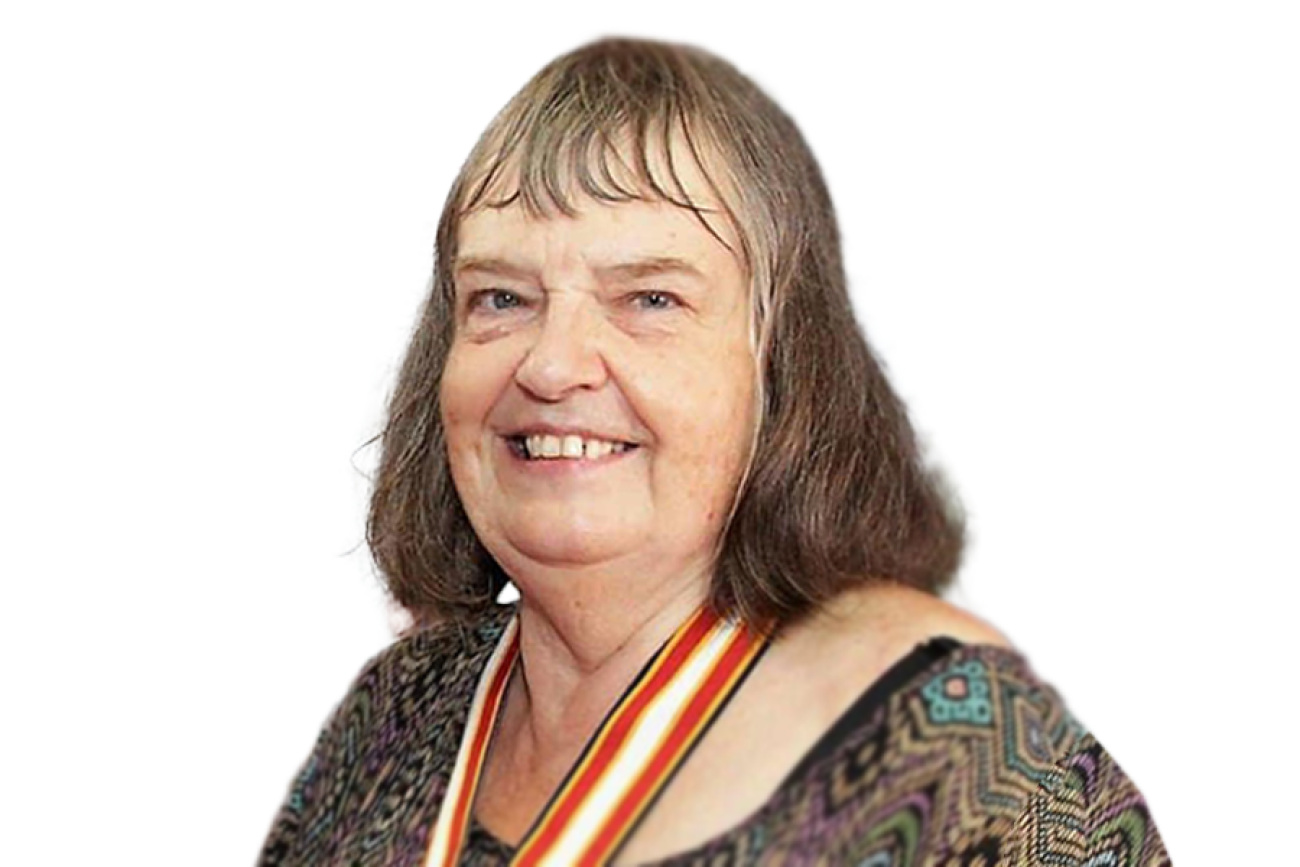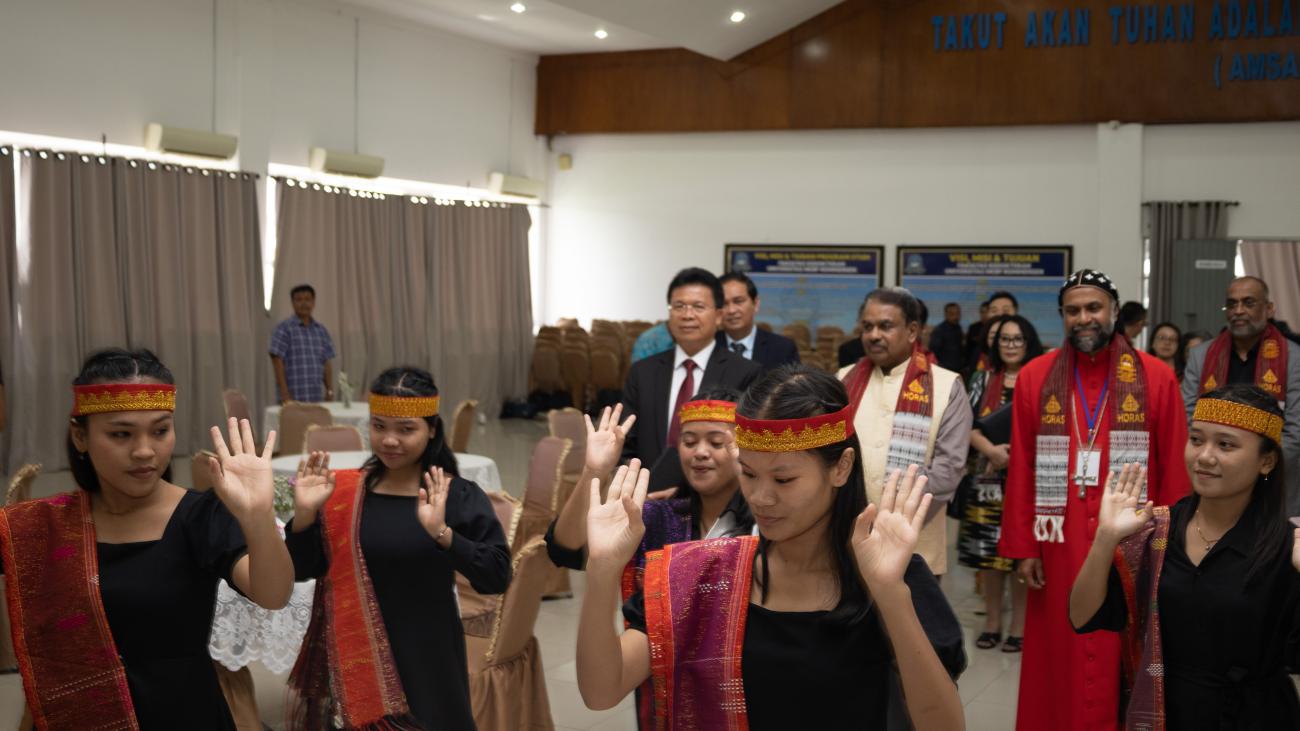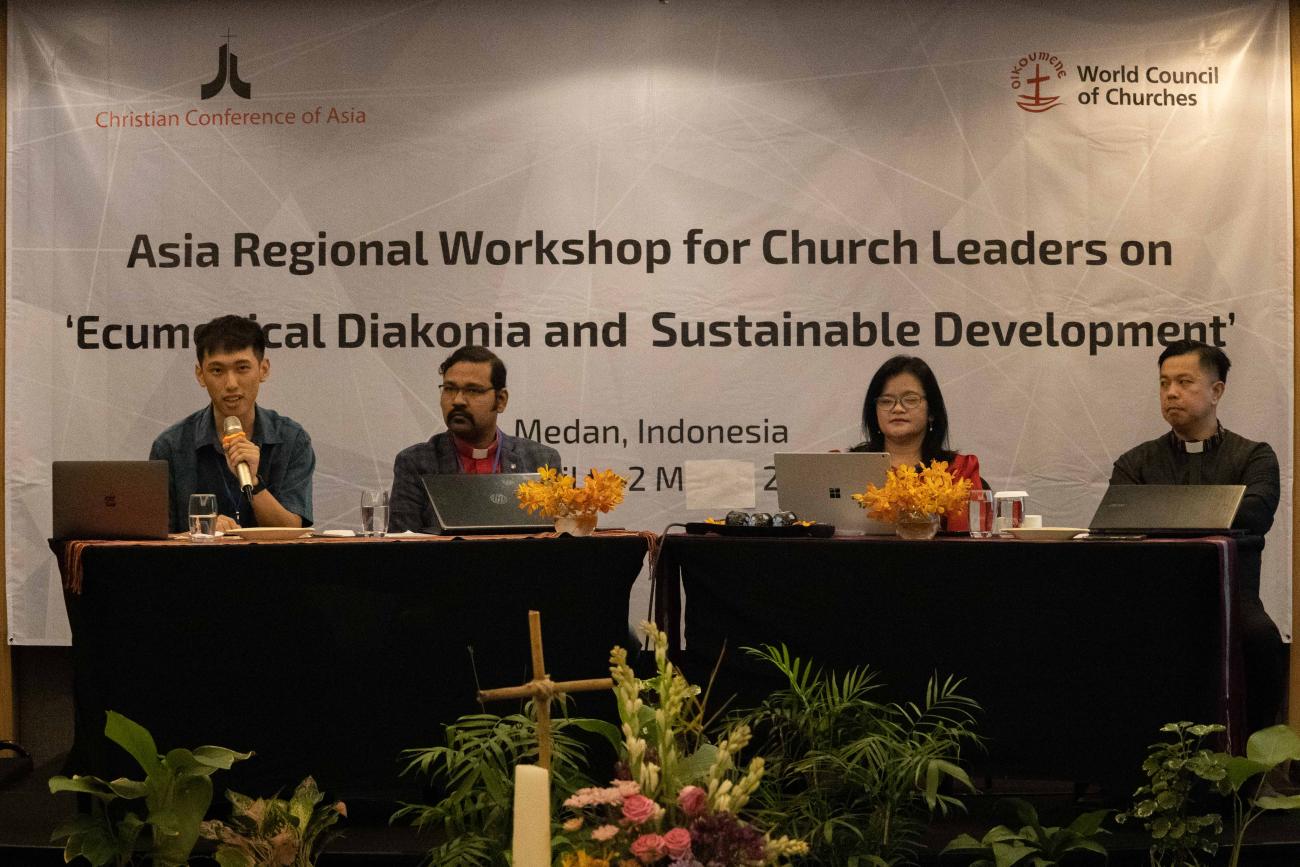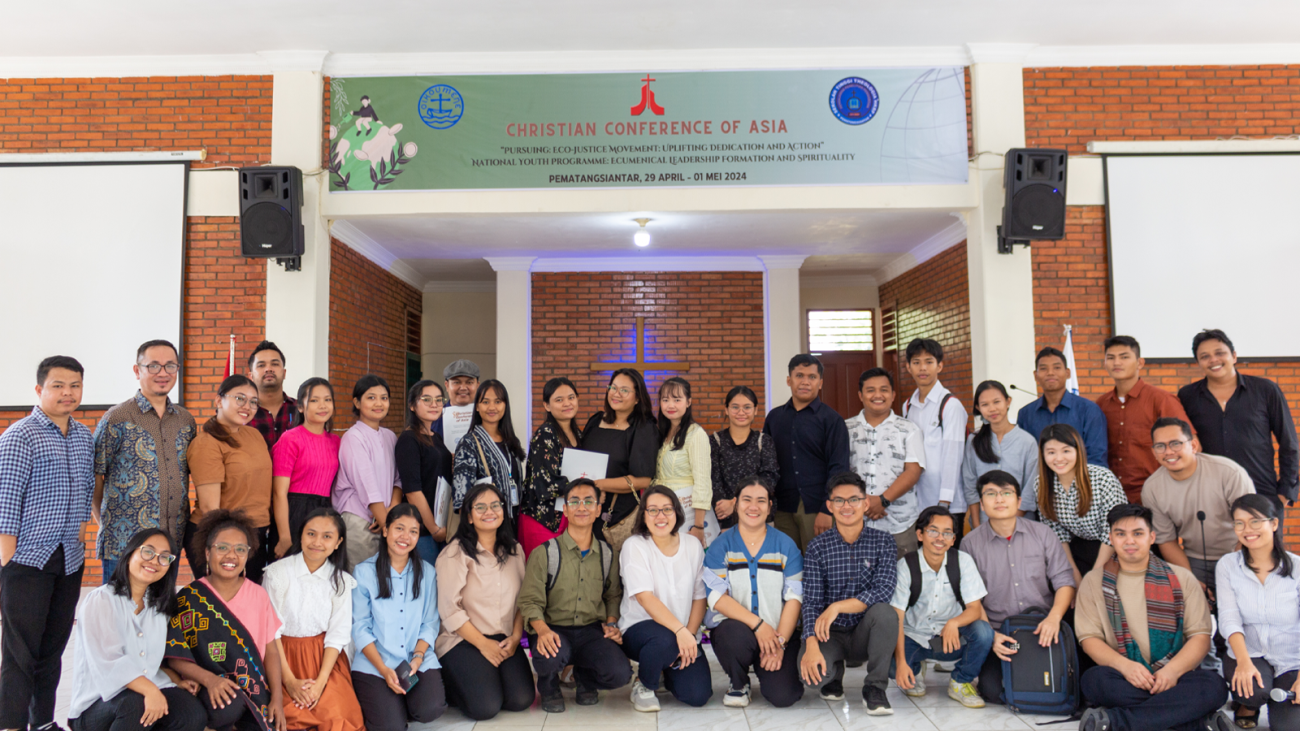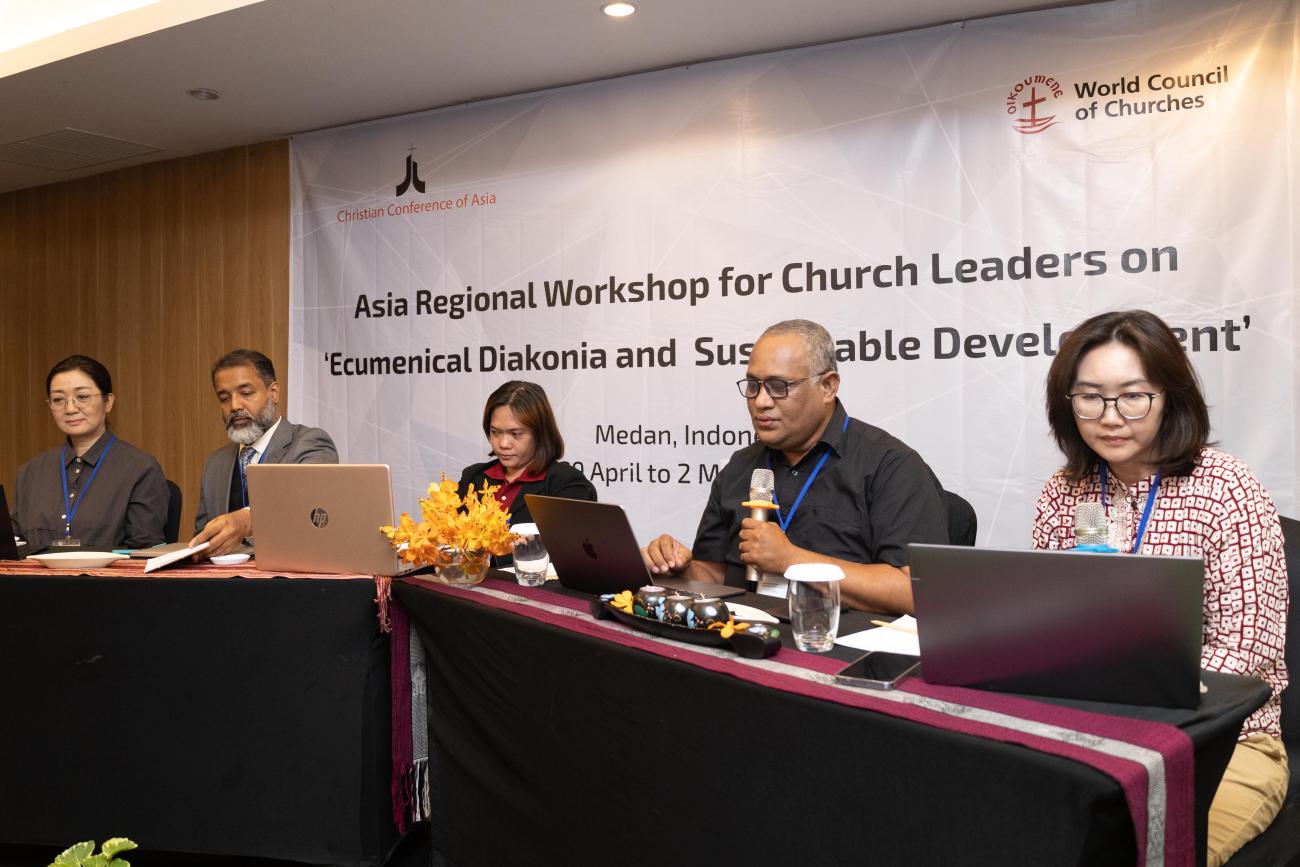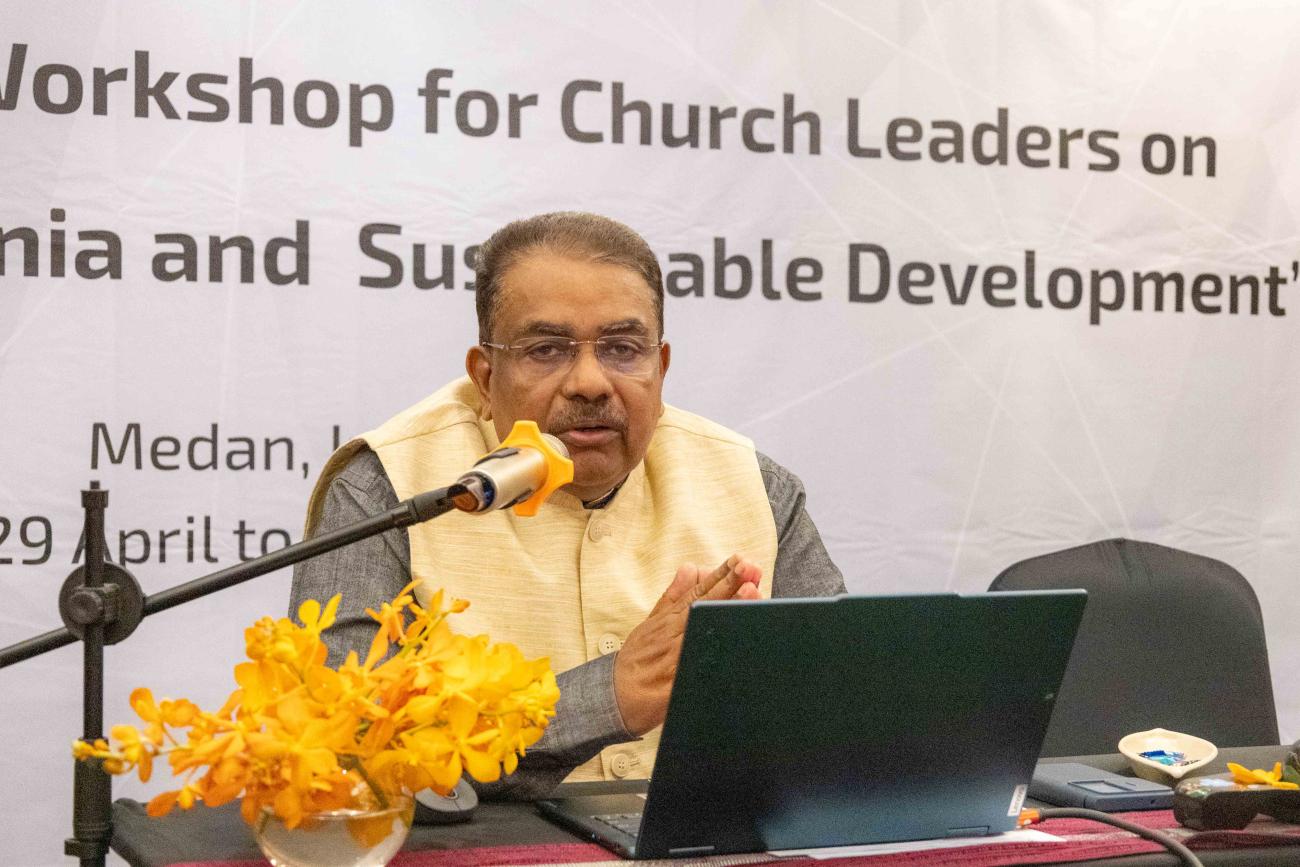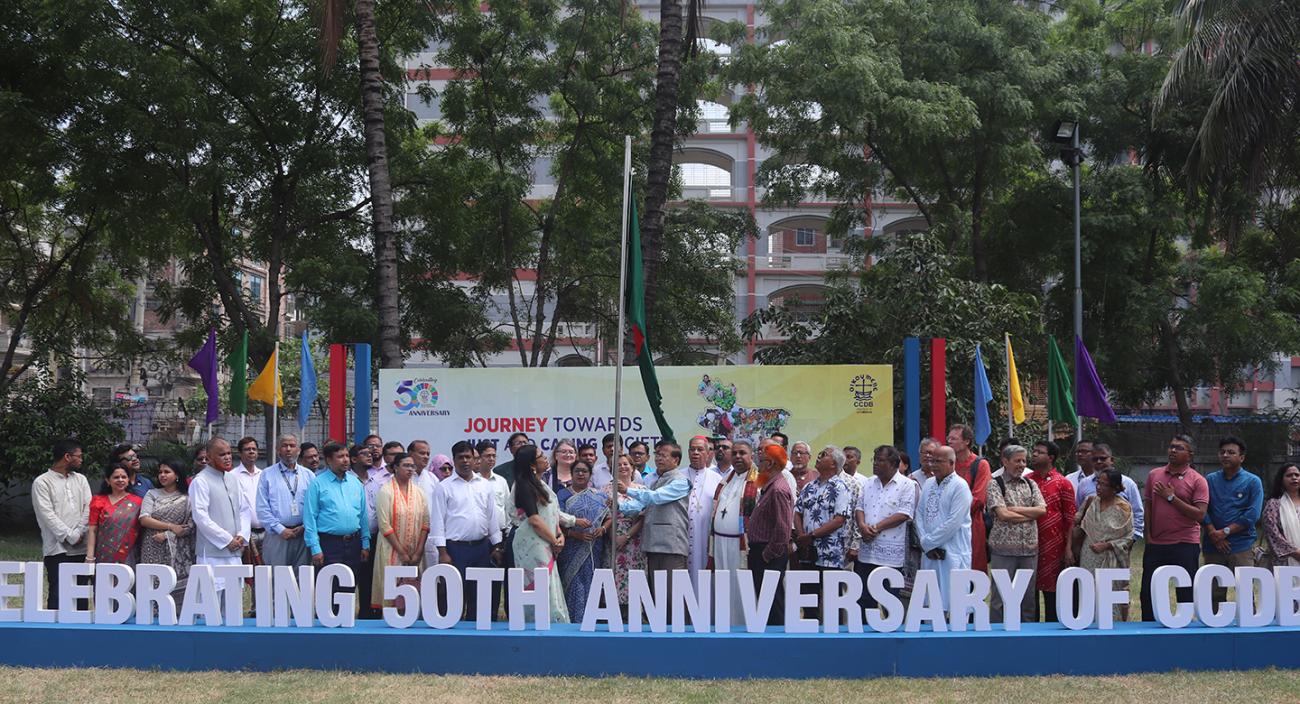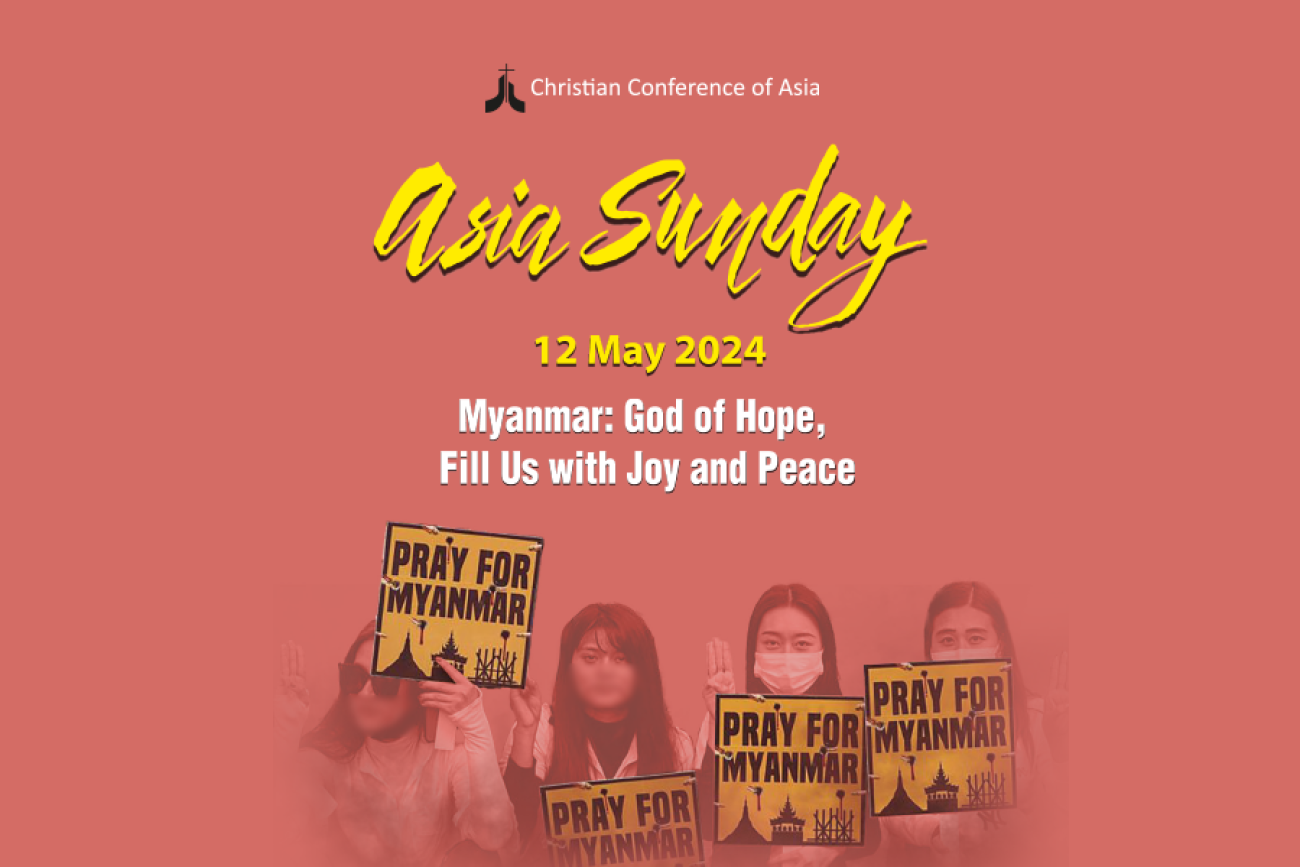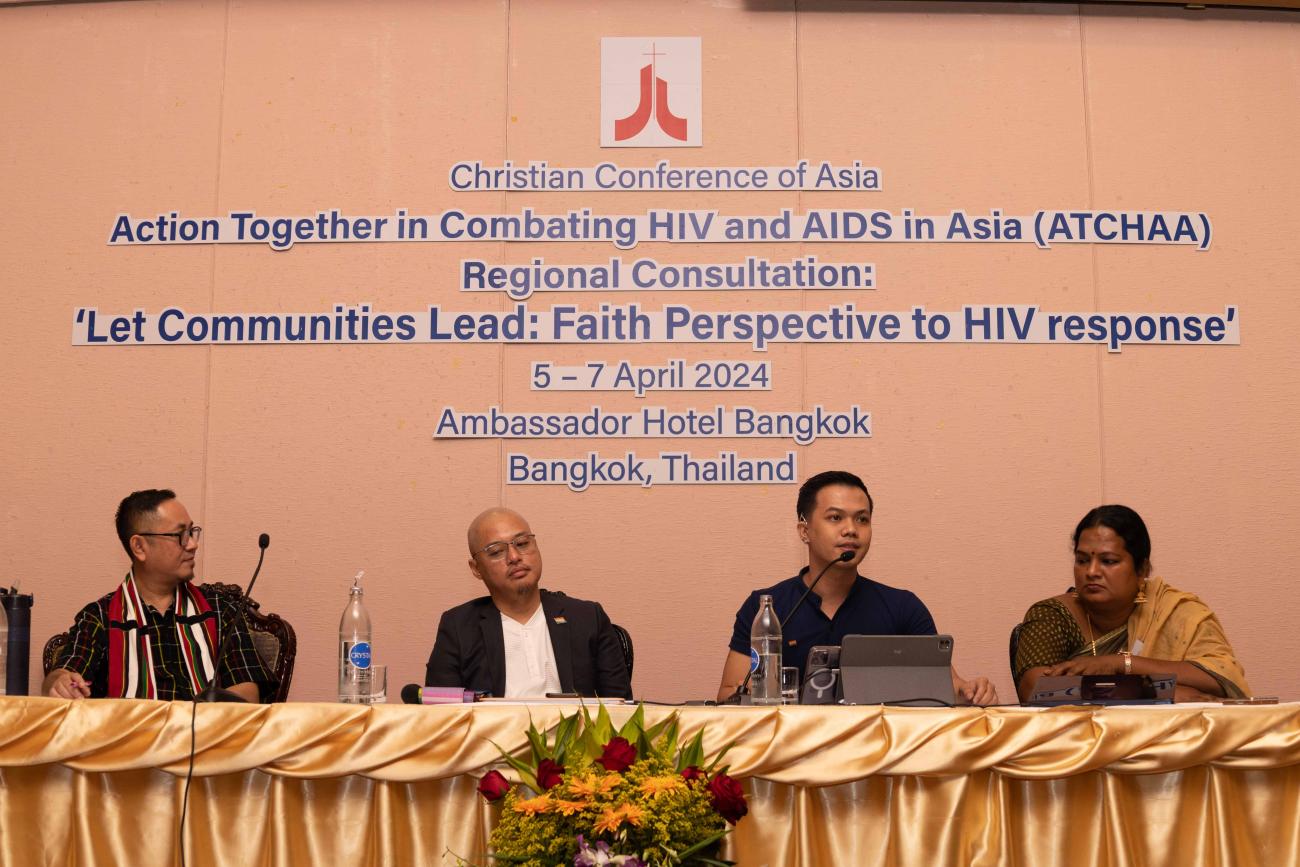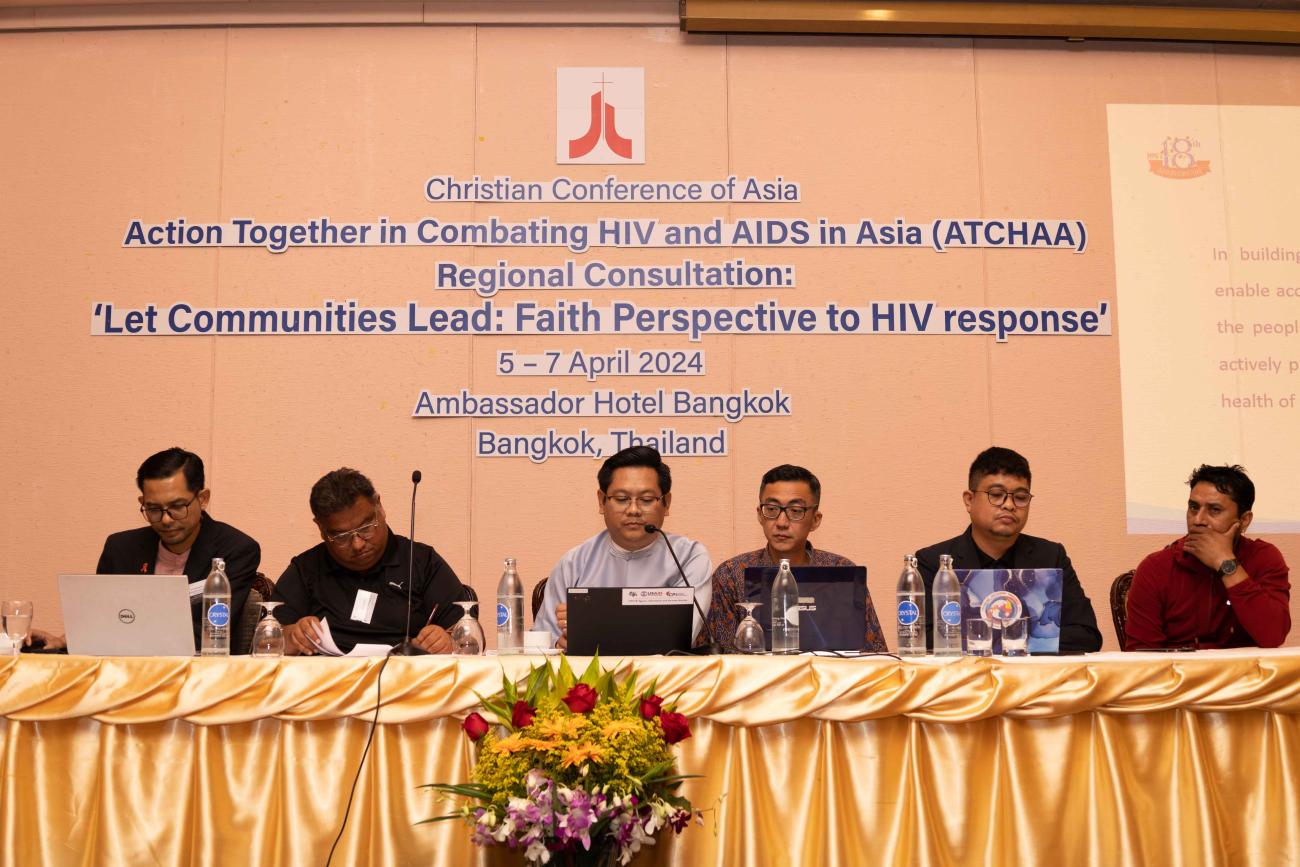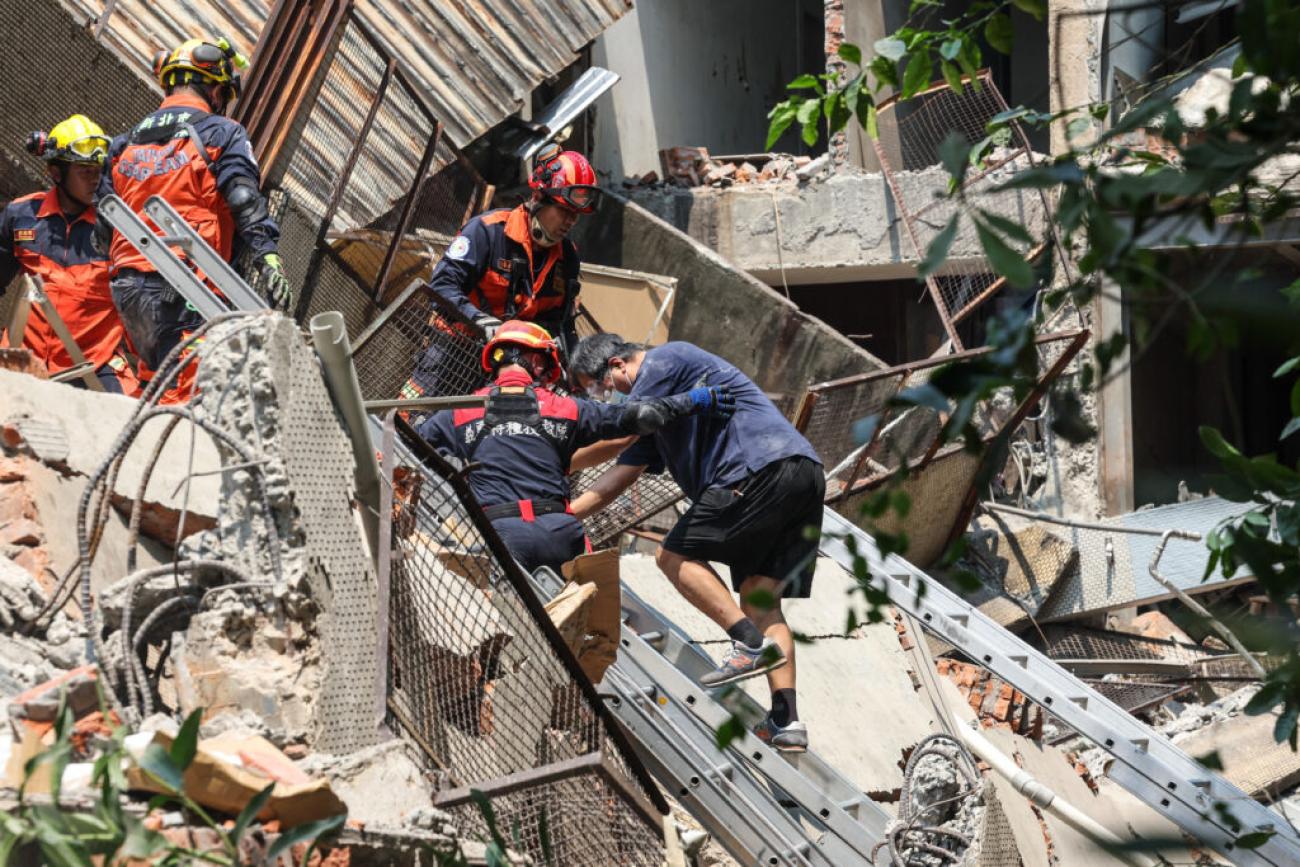Programme committee reflects on relevance of CCA programmes amidst changing Asian situation and ecumenical landscapes in Asia
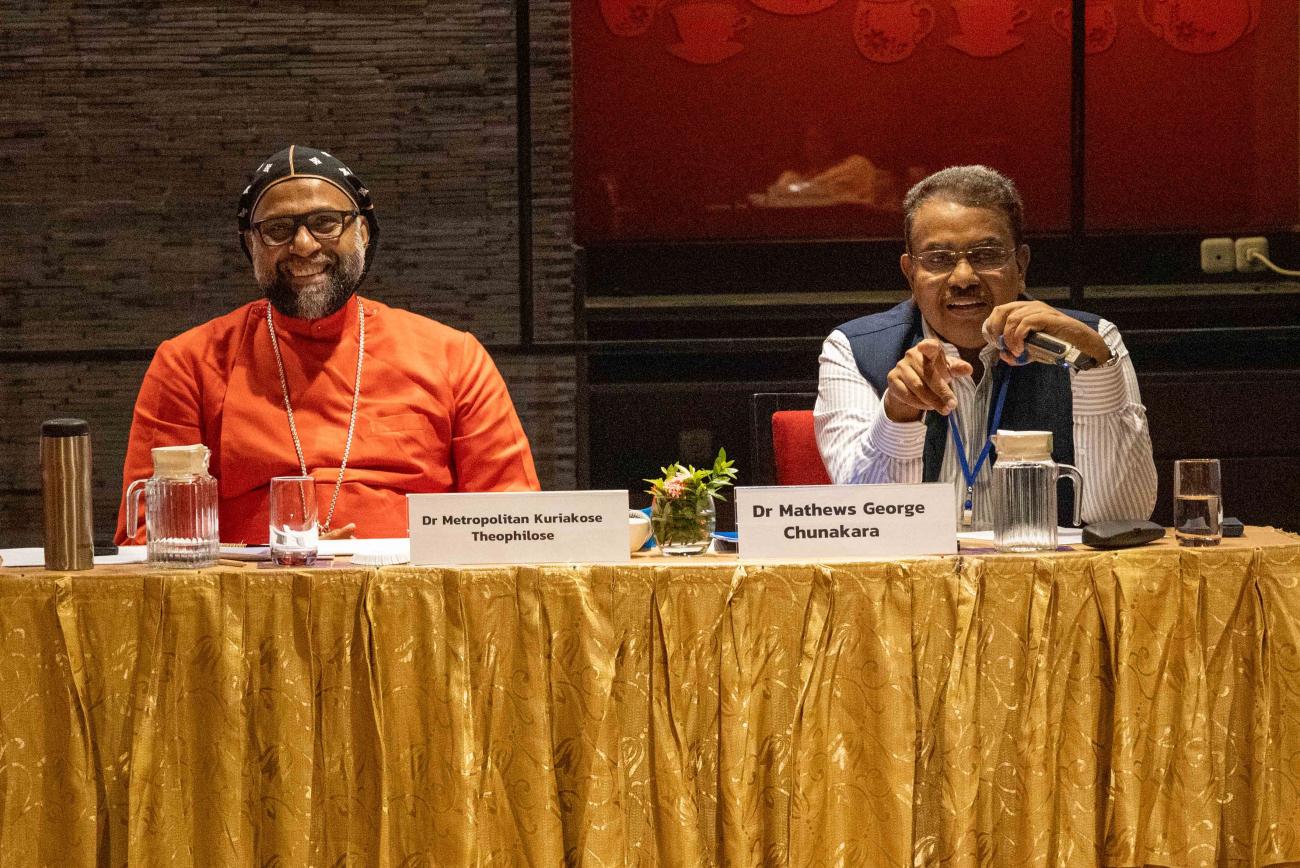
The relevance of Christian Conference of Asia’s programmes in the context of Asia’s societies, economies and geopolitics and of the changing ecumenical landscape was reflected by the CCA programme committee. Based on an analytical presentation by the General Secretary Dr Mathews George Chunakara, the committee embarked on a process of identifying the programme priorities for the next quadrennium.
“Although a general assumption has been often echoed that Asia is rising and a future global order will be shaped in the Asia region, possible indicators at sight are that the Asia region will likely be caught up in competition for political hegemony, military clout, and economic control in the twenty first century,” Dr Mathews George Chunakara told the programme committee members who are gathered for the first time to work out a new strategic programme plan for four years.
His presentation on the theme entitled “Geopolitics in Asia, and Ecumenical Response amidst Ecclesial and Ecumenical Landscape’ Dr Mathews George analysed the underlying factors that will be impacted while being engaged in ecumenical mission.
The Asia region which has traditionally been subject to power politics will have to face imminent threats at different levels. The socio-economic and political considerations that are being developed will ultimately shape Asia’s geopolitics, geoeconomics and geo strategic considerations, and at the same time complex patterns of competition, conflict, and disintegration also will unfold in Asia, added Dr Mathews George Chunakara.
In this multifarious context, he urged the programme committee to understand the complex Asian realities where religion intersected with politics, considering the factors of geography, land, economy, military, natural resources, environment, government, society, policies, and mission and witness of the Asian church. The situation across Asia experiences intensified geopolitical rivalries, increased defence spending, proliferation of the latest military technology and the region is set for a prolonged period of strategic contestation.
The CCA General Secretary reminded the programme committee to identify the issues, set the programme priorities and evolve innovative strategies not only to implement the planned activities but also to sensitise the Asian churches and the ecumenical movement to be more involved in initiating and promoting cooperation within the ecumenical family.
He also pointed out the increasing trend of competition and fragmentation within the Asian churches and ecumenical movement due to confessional and denominational factionalism that are being promoted and imported to Asia by certain mission agencies which resulted in creating separate orbits of “exclusive ecumenical territories” and “ecumenical archipelagos” in Asia.
Taking into consideration the emerging Asian scenario as well as changing ecclesial and ecumenical landscape, the programme committee started working on programme priorities and strategic programme plans.
Photo Gallery, please click here: CCA Programme Committee Meeting 2024 Day 2


